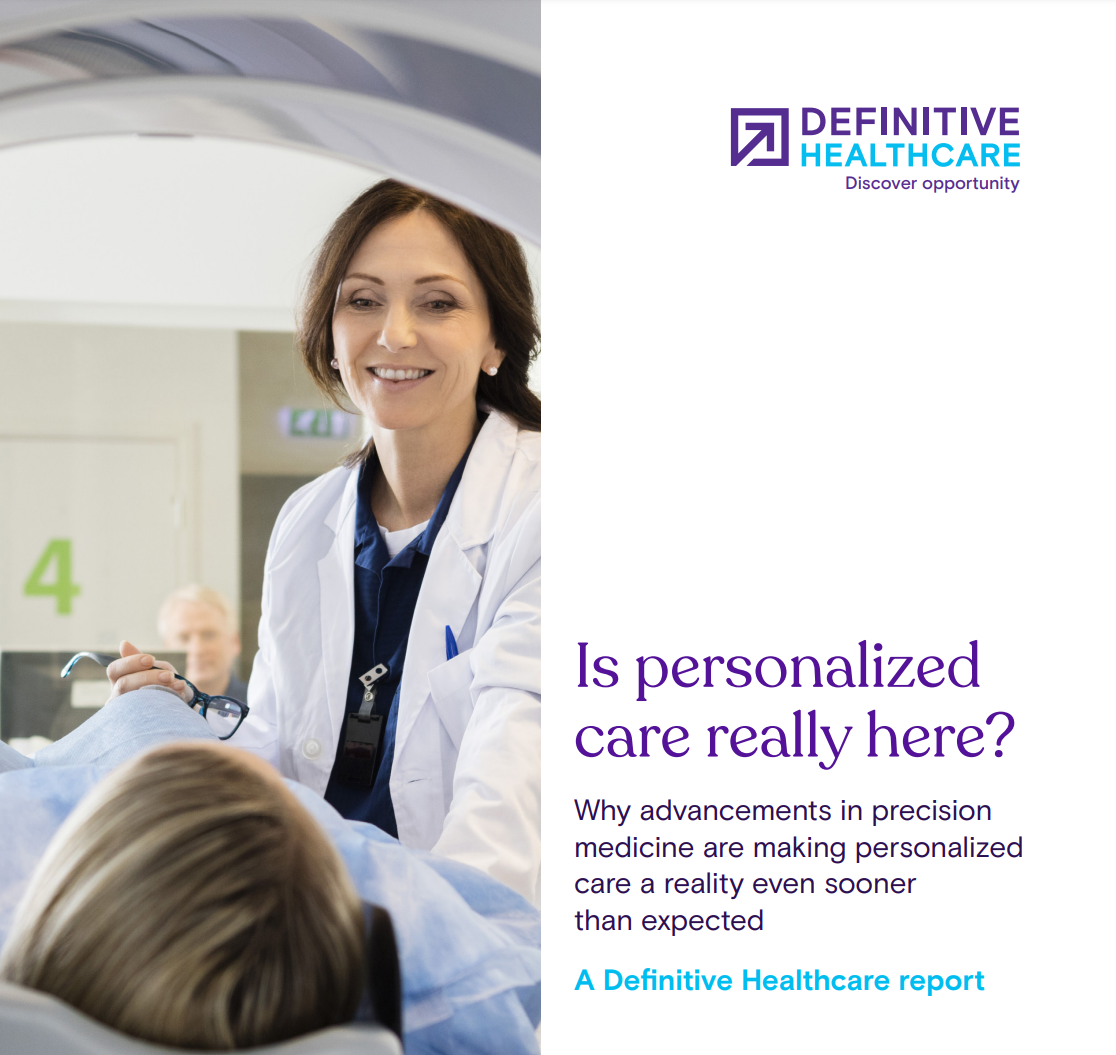
What You Should Know:
– New Definitive Healthcare report, Is Personalized Care Really Here? analyzes the US claims data to review how precision medicine has been used in recent years for cancer, transplant matching, genetic testing during pregnancy and more.
– Trends within — and adjacent to — precision medicine suggests that consumer preferences for more effective, convenient and affordable care are driving rising rates of precision medicine procedures. Furthermore, the data reveal the ways that consumers are bucking norms and claiming greater agency over their lives: they’re having children later, skipping both necessary and elective treatments when they deem costs too high and are generally placing less trust in their providers, often turning to the internet for crowd-sourced clinical guidance.
Report Background
The relationship between consumer interest and technological development has always been a question of chickens and eggs. As new technologies are developed, the surrounding media cycle generates consumer interest. And yet, simultaneously, organizations spend massive sums tracking that interest to focus their development efforts on the most marketable tech. Precision medicine, a healthcare model centered on highly personalized care (that is, personalized down to the patient’s genetic makeup), seems to sit perfectly at that uncomfortable intersection. On one hand, most people probably wouldn’t even know to ask their doctor for a genomic sequencing test to identify a potential tumor. On the other hand, millions of consumers are eagerly mailing their saliva to Silicon Valley in hopes of learning about their health and ancestry from companies using the same technology
Popular methods in precision medicine, according to claims data from Definitive Healthcare, a healthcare commercial intelligence company, include:
Molecular pathology: With a total of 1,533,894 procedures performed during the three-year period of 2019 to 2021, molecular pathology is the biggest precision medicine subcategory by volume
Genomic sequencing: In 2021, procedure volumes skyrocketed to a total of 89,946 (a 23.5% increase from 2019)
Multianalyte assays with algorithmic analyses (MAAAs): In 2021, 101,633 MAAA procedures were performed, demonstrating the greatest volume increase in precision medicine overall
